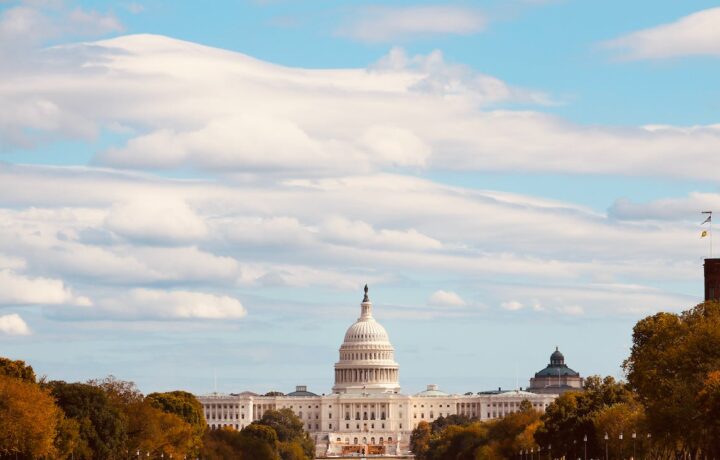On December 31, 2023, the U.S. government will no longer be able to collect the communications of foreigners abroad without first getting a warrant. This is because Section 702 of the FISA Amendments Act—last extended in 2018—is set to expire if Congress does not re-authorize it.
The Biden administration is all-in on 702, claiming that in the last year alone, intelligence originating from it helped thwart an assassination plot in the U.S., and contributed to the death of Ayman al-Zawahri, the head of al-Qaeda. But because of broad fear of the government overreach enabled by the legislation, a perhaps-unexpected alliance of the civil-libertarian left and MAGA right has come together to reform the spy power rather than simply extend it.
WHAT IS section 702
Congress created Section 702 in 2008, providing a legal basis for intelligence agencies to monitor the communications of foreign individuals outside the U.S. for foreign intelligence purposes. Prior to this, after the 9/11 attacks, spy agencies engaged in extensive surveillance activities based on classified presidential directives.
I reached out to the office of Rep. Mike Turner, the House Intelligence Committee Chairman, and they reaffirmed what he said on Face the Nation last week: that Section 702 data is “absolutely essential,” and that “as our national security threat increases, we have to make certain that we maintain the tools that have kept us safe.”
But even though 702 is foreign-facing, it inevitably leads to intelligence agencies collecting a lot of Americans’ private communications, according to Jake Laperruque, the Deputy Director of the Security and Surveillance Project at the Center for Democracy and Technology, a nonprofit organization concerned with digital rights.
“In recent years, it’s been used to improperly try to pull up the private communications of peaceful protesters; a batch of nearly 20,000 campaign donors; lawmakers at the state and federal level; a state judge trying to shed a light on civil rights abuses; journalists; among a host of other examples. I mean, just last year we had a case of an NSA analyst using this system to try to—on multiple occasions—pull up the private communications of individuals they found on an online dating site. You know, I think we’ve just seen pretty clearly that in the absence of independent oversight, it causes abuse,” he told me.
REDEEMING 702
Before 9/11, the idea that the government could electronically spy on anyone, anytime, was for people in tinfoil hats. Today we know that the tinfoil-wearers were right: the government has far-reaching authorities over electronic communication – including that of Americans. Naturally, such painless technological abilities would be misused. I think most people would agree that it would be a pretty great thing for spy agencies to know when terrorists are planning to detonate a bomb at the Super Bowl. But nobody wants to be personally spied on. Which means the only way to have our cake and eat it too would be to keep constant watch on the watchmen.
“I think the notion of putting guardrails like judicial review on 702 can make a big difference, and can offer a path forward on it,” said Laperruque. “There’s pretty clearly a need to overhaul these systems, have more independent oversight of them, and not just the sort of ‘self-policing’ proposals that we’ve seen.” Moreover, the system needs some level of transparency, which is not the intelligence community’s strong suit.
Government surveillance reform isn’t really one of those Republican or Democratic issues that moves based on whichever party has the most power in Washington D.C. Rather, it usually only happens when there is bipartisan support. Today we have the ACLU and MAGA both in alignment on the issue, and a ticking clock to impel change.
WHAT HAPPENS NEXT
Earlier this month, members of Congress introduced the bipartisan, bicameral Government Surveillance Reform Act, intended to reauthorize Section 702 with sweeping new protections for constitutional rights. Among other things, it forbids the warrantless spying on foreigners as a pretext for actually spying on the Americans with whom they are communicating; requires warrants to surveil American location data and Alexa and Siri queries; and prohibits the government from buying data on Americans from data brokers.
The House Intelligence Committee will also be putting forward its own bill, though has yet to release the text.
Whichever reforms are passed, assuming the power is extended, the story of Section 702 will not likely end there. The power was first implemented in 2008, and was reaffirmed in 2012 and 2017 (signed into law that second time in 2018). Each time, the surveillance had “sunset” provisions attached to it: expiration dates forcing lawmakers periodically to reconsider the balance of national security needs and privacy concerns. (The Government Surveillance Reform Act sunsets in four years, should it be passed into law.) In the future, it is easy to see scenarios where the conversation is driven by such technologies as artificial intelligence, which is only going to get more powerful and less predictable.
“We need sunsets on these authorities because of the way they are used and the power that comes with them,” said Laperruque. “New threats will always arise if we don’t periodically look at them, and make the government justify their continued use.”
Until then, only one month remains for Congress to extend the surveillance power, and the president to sign it into law. Sunset fast approaches.




